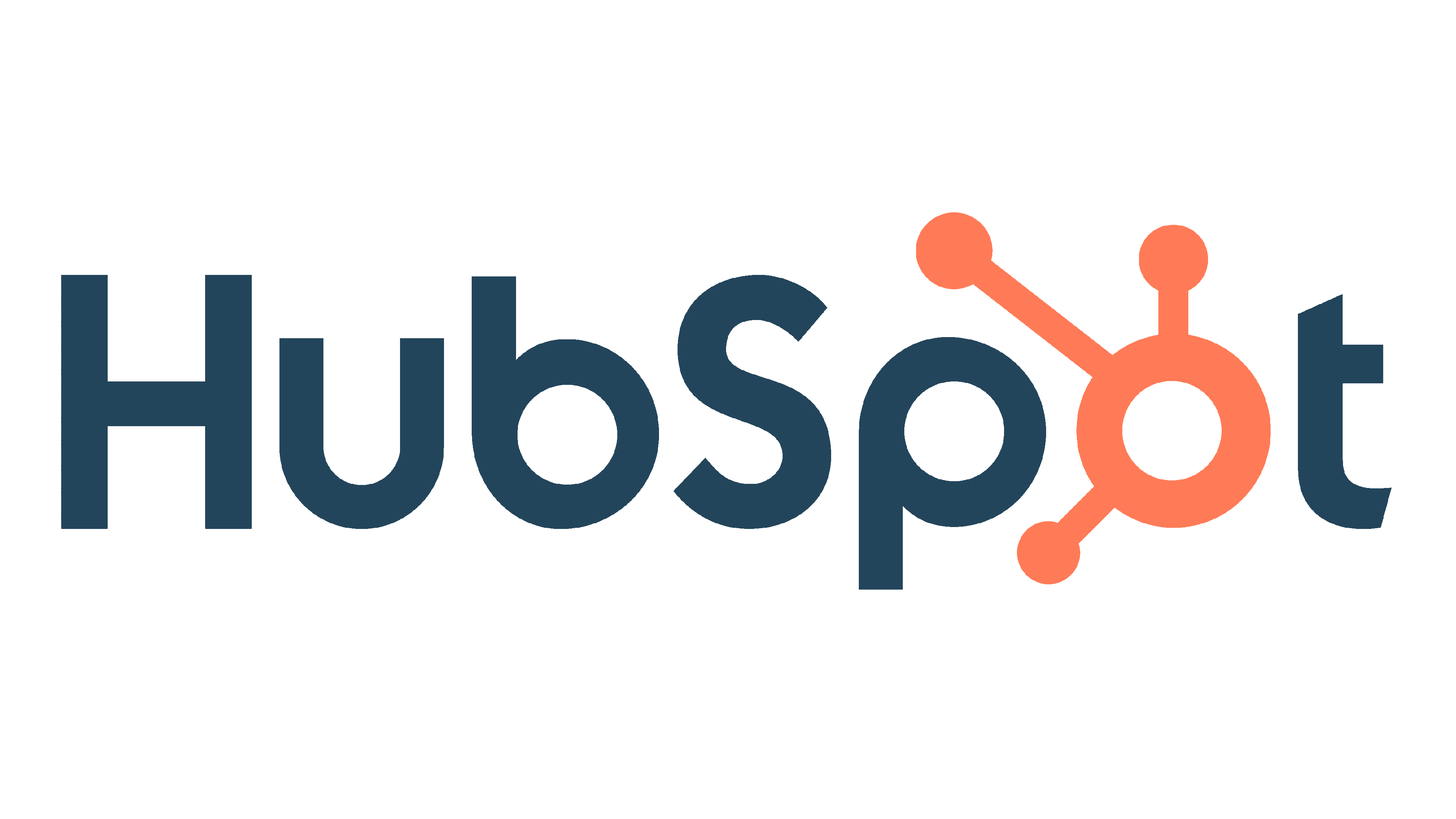Salesforce vs HubSpot – A Comprehensive CRM Comparison
A brief overview introducing Salesforce and HubSpot as two of the leading CRM solutions in 2025, catering to businesses of all sizes. Mention the importance of choosing the right CRM for scalability, customer engagement, automation, and team productivity.
Get started
Pricing and Plans Comparison (Starting Monthly Costs per License)
Salesforce Pricing Tiers
Salesforce Starter
$25
Small businesses, basic CRM needs
Salesforce Pro Suite
$100
Growing businesses with automation
Salesforce Enterprise
$175
Large teams, advanced customization
Salesforce Unlimited
$350
Enterprises, advanced analytics
Agentforce 1 Sales
$550
AI Agent focused
HubSpot Pricing Tiers
HubSpot Free
$0
Startups or early-stage CRM adopters
HubSpot Starter
$15-20
Small teams needing core CRM capabilities
HubSpot Professional
$100
Mid-sized businesses needing automation
HubSpot Enterprise
$150
Large businesses with enterprise needs
Note: HubSpot prices often scale with contact volume and features per module (Sales, Marketing, Service).
Salesforce and HubSpot Features and Functionality
Salesforce Features
-
Custom sales pipelines
-
Advanced workflow automation
-
Einstein AI for forecasting & insights
-
Role-based access control
-
Powerful reporting dashboards
-
Comprehensive Service Cloud & Marketing Cloud options
HubSpot Features
-
All-in-one CRM (sales, marketing, service)
-
Drag-and-drop marketing automation
-
Built-in CMS & landing page tools
-
Conversational bots and live chat
-
Lead scoring, email tracking
-
Robust integrations across departments
Customization and Scalability
Criteria
Salesforce
HubSpot
Custom Fields & Objects
✔️ Advanced via Apex code and Lightning components
✔️ Easy with drag-and-drop; limited at scale
Workflow Automation
✔️ Highly customizable
✔️ Easy for beginners, limited in free/Starter plans
Scalability
🚀 Built for enterprise growth & expansion
👍 Scalable but may get costly with contact volume
Salesforce is ideal for businesses needing complex CRM ecosystems. HubSpot is great for teams that need simplicity and fast go-to-market setup.
Integration and Compatibility
Platform
Integration Sources
Third-Party App Ecosystem
Salesforce
AppExchange, ERP systems, Outlook, Gmail, Slack
3,400+ apps
HubSpot
Zapier, G Suite, Shopify, WordPress, Zoom
1,200+ apps on HubSpot Marketplace
Salesforce is better for enterprise integration depth. HubSpot wins in quick plug-and-play setups.
User Interface and Ease of Use
Salesforce User Interface
-
Clean and professional (Lightning UI)
-
Requires admin support or training
-
Deep menus and layered options
Salesforce CRM User Interface
-
Great for complex deal tracking
-
Includes customizable dashboards
-
Can overwhelm new users
HubSpot User Interface
-
Intuitive, modern interface
-
Easy to navigate for new users
-
Drag-and-drop customization for workflows
HubSpot CRM User Interface
-
Friendly for small teams
-
Visual pipeline management
-
Less intimidating for beginners
The Importance of Evaluating UI and Ease of Use

UI impacts adoption and productivity

HubSpot is generally easier for SMBs

Salesforce rewards time invested in training and setup
Customer Support and Training
Criteria
Salesforce
HubSpot
Support Access
Tiered (Standard, Premier, Signature)
Email/chat support across all plans
Learning Resources
Salesforce Trailhead (in-depth)
HubSpot Academy (beginner-friendly)
Onboarding Services
Available via partners and consultants
Available with Pro/Enterprise plans
HubSpot is easier to self-learn. Salesforce has more technical documentation and partner ecosystem.
Analytics and Reporting
Analytics Feature
Salesforce
HubSpot
Custom Dashboards
✔️ Yes, very detailed
✔️ Yes, limited in free/Starter plans
Forecasting & Predictions
✔️ Einstein AI and real-time opportunity tracking
✔️ Basic to intermediate reporting
Attribution Reporting
✔️ Multi-touch attribution for marketing ROI
✔️ In higher-tier plans
🚀 Salesforce leads in enterprise-grade reporting. 👍 HubSpot is great for marketing and lead tracking.
Pros and Cons
Salesforce – Pros & Cons
Pros:
-
Enterprise-ready and highly customizable
-
Extensive automation and AI tools
-
Strong ecosystem of integrations
Cons:
-
Expensive for small businesses
-
Requires training and setup time
-
Complex for beginners
HubSpot – Pros & Cons
Pros:
-
Easy to use and quick to deploy
-
Great for inbound marketing
-
Free plan with essential features
Cons:
-
Costs rise with contact growth
-
Less customizable for complex needs
-
Some limitations in free/Starter plans
FAQ
Is Salesforce better than HubSpot for small businesses?
Not always. HubSpot is more affordable and user-friendly for small teams, while Salesforce suits larger organizations needing advanced customization.
Which platform has better email marketing tools?
HubSpot has built-in email marketing, landing pages, and automation in its core platform. Salesforce requires Marketing Cloud or Pardot.
Can I migrate from HubSpot to Salesforce or vice versa?
Yes, both platforms offer migration tools or third-party support for smooth transitions.
Conclusion
Both Salesforce and HubSpot are excellent CRM platforms, but they serve different types of businesses.

Choose Salesforce
If you’re looking for an enterprise-level CRM with advanced automation, integrations, and scalability.

Choose HubSpot
If you need a user-friendly platform with strong marketing tools and fast team onboarding.
Ultimately, your budget, technical resources, business goals, and team size will determine the right CRM for your organization.
Contact Us
Get Expert Cloud CRM Guidance Today






